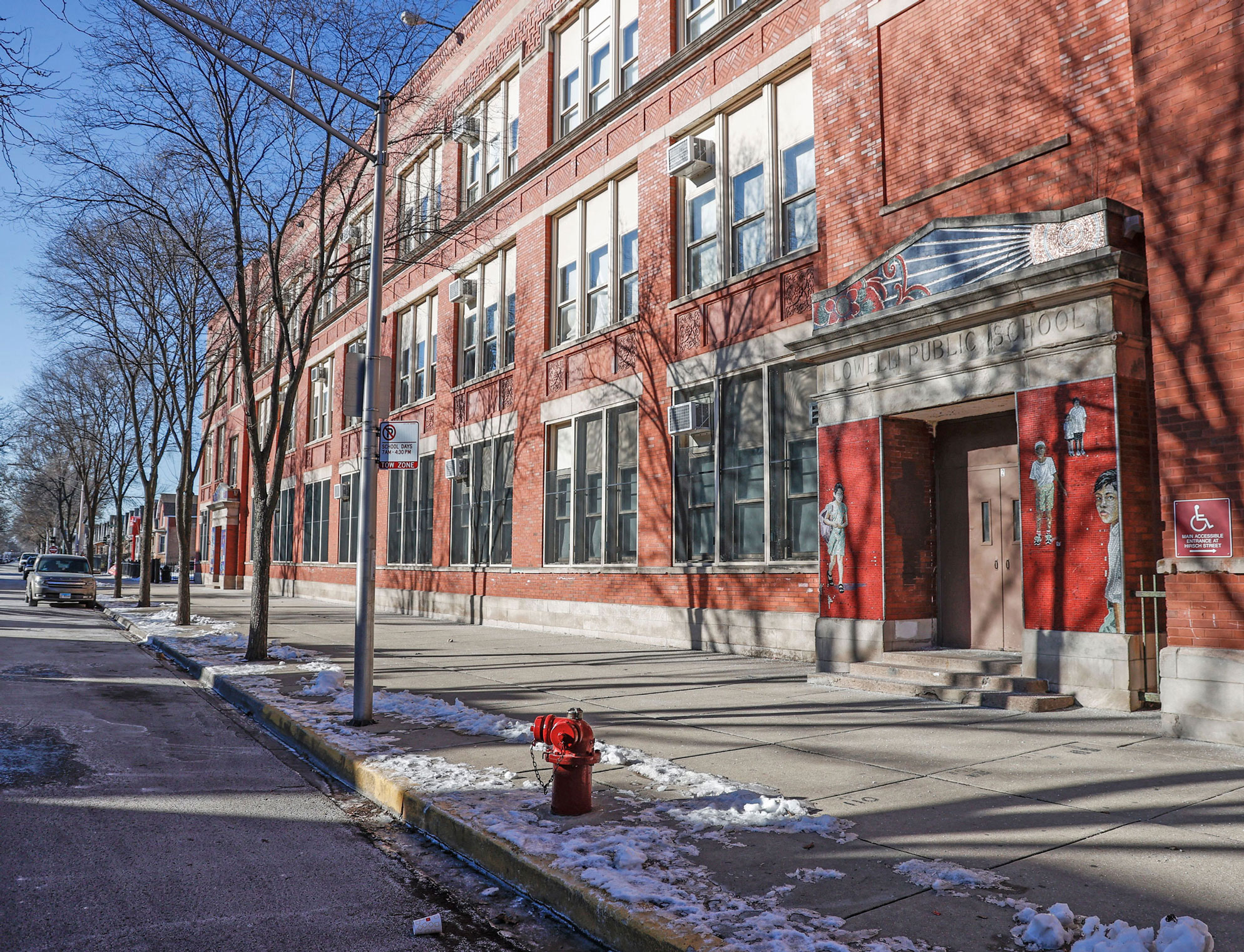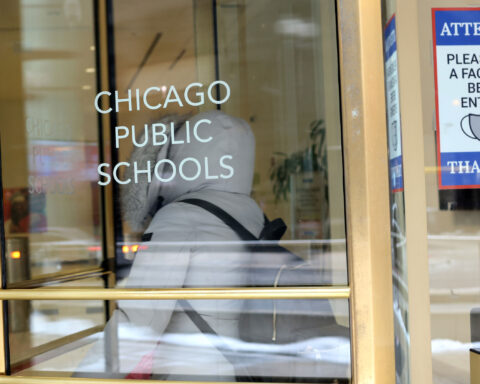Chicago teachers are set to return to work Tuesday and students to get back to in-person instruction Wednesday following a breakthrough in union negotiations with the city over Covid-19 mitigation measures.
The standoff, which will have kept 340,000 students in the third-largest US school system out of classrooms for a week, has become perhaps the nation’s most contentious as the Omicron variant has caused a spike in coronavirus cases, again raising questions about pros and cons of in-person versus virtual school.
The Chicago agreement, which includes enhanced Covid-19 testing in schools, will extend through the rest of the school year, Mayor Lori Lightfoot said, adding, “I’m hopeful will have a stable, uneventful rest of the school year.”
Coronavirus testing in schools will ramp up to 10% of students in each school being tested each week, Chicago Teachers Union Chief of Staff Jen Johnson said. Some 350,000 rapid antigen tests were delivered to the school district to help address testing concerns, Illinois Gov. JB Pritzker said Monday night.
The mayor’s administration also will work with the teachers union, or CTU, in engaging families to increase testing consents, Lightfoot said.
“That’s a critical part of it,” she said. “We want to get to as high a number in testing consents as we possibly can.”
The proposal includes details on contact tracing and new incentives to increase the number of substitutes in the district, the mayor said.
The two sides also “reached an agreement on the metrics for, at a school-based level, for when we needed to convert a classroom or school to go remote. Not surprisingly, the component parts of that depend upon staff and or student absences,” she said.
How the stalemate over school evolved
The confrontation over in-person classes began last Tuesday when CTU voted to begin teaching virtually amid rising Covid-19 cases in the school system. In response, the school district canceled classes.
The CTU’s House of Delegates voted Monday to suspend the remote work action while its rank-and-file members vote on the proposed agreement.
Amid that voting process, students will return to in-person instruction Wednesday, Chicago Public Schools said in a letter to families. A written document with full details of the agreement would be released after CTU members approved the deal, Lightfoot said.
“I’m not going to say this is a home run,” said CTU President Jesse Sharkey. “We’re happy it’s over, but we’re not happy we had to go through it in the first place.”
“We’re still working out some of the details, but we anticipate information to go to members tomorrow about opening polls at some point tomorrow,” Johnson said at a news conference Monday night.
There’s a desire for members to “have time to meet with their colleagues … and discuss the terms and really grapple with the strategic question of what is and isn’t achievable in this moment with this mayor, and then, you know, keep ballots open for sufficient time to have that kind of dialog and debate.”
CTU would also probably have another all-member meeting while the voting window is open to discuss details of the agreement, Johnson said.
“We understand that people want to be able to voice their choice on a timetable that makes sense with what’s in the agreement, and we’ll have to balance that with ensuring that votes are able to come in,” Johnson said.
District last week notched record-high Covid-19 cases
Last Tuesday, the last day students were in classrooms, Chicago Public Schools reported 422 new Covid-19 cases among students and 271 new cases among adults — both record highs for the academic year.
CTU originally proposed resuming in-person teaching Tuesday, January 18, “unless (the Chicago Department of Public Health) or the State of Illinois determine that public health conditions are not safe for in-person school at the time.”
This isn’t the first time school has been canceled over an impasse between the teachers’ union and Lightfoot.
In 2019, the same year Lightfoot took office, more than 25,000 Chicago educators went on strike to demand more support staff, higher raises and limits on class sizes.
The 11-day strike ended when the city agreed to increase school staffing, including more school nurses and 209 more social worker positions — enough for one social worker at each school.
The deal also included more funding to reduce oversized K-12 classrooms and more funding for recruitment and training.




